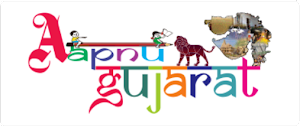Supplementary, Difference Bills, Travel Allowances etc. Bills Detailed information of Accounts Branch Bills, will be useful to others
Canada’s universal health-care system
If you are a Canadian citizen or permanent resident, you may apply for public health insurance. With it, you don’t have to pay for most health-care services.
The universal health-care system is paid for through taxes. When you use public health-care services, you must show your health insurance card to the hospital or medical clinic.
Each province and territory has their own health insurance plan. Make sure you know what your plan covers.
All provinces and territories will provide free emergency medical services, even if you don’t have a government health card. There may be restrictions depending on your immigration status.
If you have an emergency, go to the nearest hospital. A walk-in clinic might charge fees if you don’t live in that province or territory.
Waiting period to get public health insurance
In some provinces you must wait, sometimes up to three months, before you can get government health insurance. Contact the ministry of health in your province or territory to know how long you’ll need to wait. Make sure you have private health insurance to cover your health-care needs during this waiting period.
Canada’s universal health-care system
If you are a Canadian citizen or permanent resident, you may apply for public health insurance. With it, you don’t have to pay for most health-care services.
The universal health-care system is paid for through taxes. When you use public health-care services, you must show your health insurance card to the hospital or medical clinic.
Each province and territory has their own health insurance plan. Make sure you know what your plan covers.
All provinces and territories will provide free emergency medical services, even if you don’t have a government health card. There may be restrictions depending on your immigration status.
If you have an emergency, go to the nearest hospital. A walk-in clinic might charge fees if you don’t live in that province or territory.
Waiting period to get public health insurance
In some provinces you must wait, sometimes up to three months, before you can get government health insurance. Contact the ministry of health in your province or territory to know how long you’ll need to wait. Make sure you have private health insurance to cover your health-care needs during this waiting period.
Getting a health card
You need a health insurance card from the province or territory where you live to get health care in Canada. You must show this card each time you get medical services.
Provincial and territorial ministries of health:
You need a health insurance card from the province or territory where you live to get health care in Canada. You must show this card each time you get medical services.
Provincial and territorial ministries of health:
- Alberta
- British Columbia
- Manitoba
- New Brunswick
- Newfoundland and Labrador
- Northwest Territories
- Nova Scotia
- Nunavut
- Ontario
- Prince Edward Island
- Quebec (in French only)
- Saskatchewan
- Yukon
- Extra health insurance
Government health insurance plans give you access to basic medical services. You may also need private insurance to pay for things that government plans don’t fully cover.
The most common types of plans are extended health plans. These cover costs for:
prescription medications
The most common types of plans are extended health plans. These cover costs for:
prescription medications
- dental care
- physiotherapy
- ambulance services
- prescription eyeglasses
If you work, you may get extra coverage from the company or organization you work for.
Health coverage for protected persons or refugee claimants
In some cases, the Interim Federal Health Program (IFHP) provides temporary health insurance to:
The temporary care covers you and your dependents until you are eligible for health plan coverage through your province, territory or private plan.
DOWNLOAD PARIPATRA
Health coverage for protected persons or refugee claimants
In some cases, the Interim Federal Health Program (IFHP) provides temporary health insurance to:
- refugees
- protected persons
- refugee claimants
The temporary care covers you and your dependents until you are eligible for health plan coverage through your province, territory or private plan.
DOWNLOAD PARIPATRA
Tags:
Paripatra
